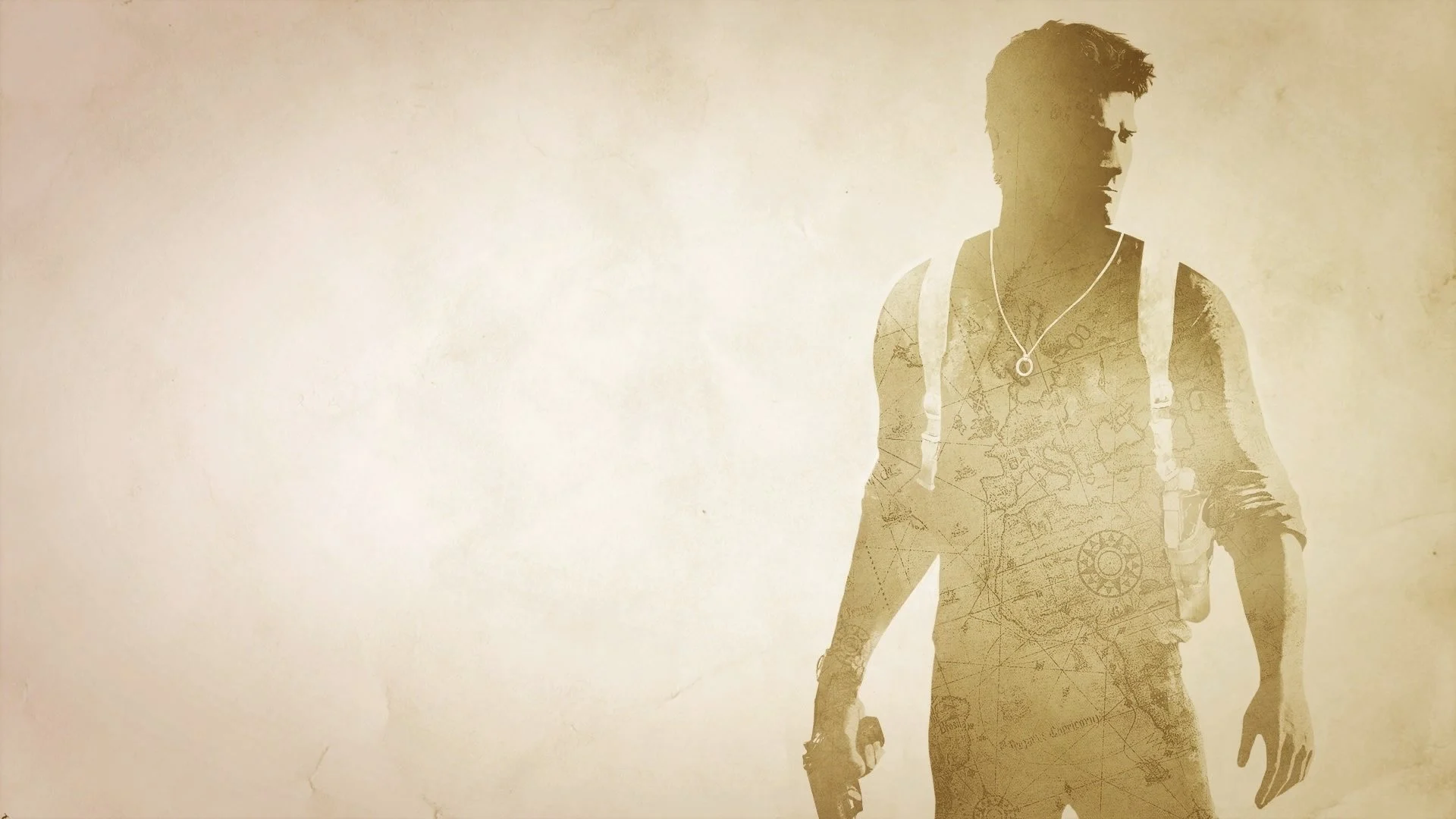
The Uncharted Series
"There must be a beginning of any great matter, but the continuing unto the end until it be thoroughly destroyed yields the true glory."
The protagonist of the first four Uncharted games, Nathan Drake, is a treasure hunter. However, in the four games released between 2007 and 2016, he never really acquires much treasure. He finds plenty, sure, but most of it ends up buried in the collapsed ruins of the Lost City of Whatever or left in a warehouse owned by some villainous competitor. The only thing Nathan has to show for his adventures, at least prior to the years-later epilogue of Uncharted 4, are a few odds and ends in his attic, which he sometimes looks at nostalgically, defeated by a life of suburban mediocrity. It seems not to be about the treasure for Nathan, but about the hunt.
It’s in that hunt — four games’ worth of it — that Nathan reveals his true self. He’s not just a mid-00s recreation of Indiana Jones who has traded his hat and whip for gel-crusted hair and cargo shorts with pockets full of nu-metal CDs; instead, he’s a striking representation of western imperialism. As the games progress, he offers a microcosmic view of American Exceptionalism, the endless outward reach of colonial power, and the unrepentant violence they both enable.
At the start of the first Uncharted game, Nathan Drake doesn’t have the traditional trappings of a treasure hunter. He reads more as an American everyman: a guy you’d see at the company picnic who would wear a polo shirt and shorts, who would tell you how good he used to be at cornhole back in college, who would explain to you that he’s going to the lake this weekend. There’s a sense of playful arrogance and sarcasm to everything he says, but nothing particularly funny or clever. A movie version of him might be played by 2007-era Dane Cook.

Nathan quickly shatters this unassuming image as pirates approach his boat off the coast of Peru, though. He whips out a handgun and takes cover, single-handedly exploding a series of boats with well-placed gunshots and protecting his perpetual damsel in distress documentarian love interest, Elena. The shift establishes him right from the start as more than just a boring amateur archaeologist. He’s an Awesome Hero.
Shortly after, Nathan’s long-time father figure and sidekick, Sully, swoops in to the rescue. Like Nathan, Sully is just some dumpy guy. He doesn’t have the gravitas or dignity of, say, Sean Connery as Henry Jones in whichever Indiana Jones is the one that has his dad in it. Instead, he reads more like an actual dad, like your friend’s dad who loves Jimmy Buffett and wears a Hawaiian shirt with a cocktail sauce stain on it, who invites you out to dinner one day at Outback Steakhouse and sexually harasses the waitress as a joke. He’s a True American Dad.
"Twice in Uncharted 2, Nathan watches a female companion climb a ladder, then says 'nice' while looking up at her butt."
Everything about Nathan and Sully's adventures from that point on marks them as unassailable, not because of their skills, or their resources, or any particular choices they make, but out of the sheer quantity of plot armor that surrounds them. Sully appears to be killed multiple times throughout the series, but it’s always a fake-out — a diary in his pocket stops a bullet, for example — and "how is he going to get out of this one" moments where guns are trained on Nathan are resolved by him getting shot over and over again and simply not dying.
Even the gameplay mechanics reinforce our heroes’ forward momentum, because almost every time you control Nathan jumping from a falling platform, or running along a rapidly-collapsing bridge, or wildly scrambling up a vertical cliff-face, you really don’t know where he’s going, but he still gets there. You just press forward, assuming there will be another thing to grab or jump onto, and there always is. Nathan doesn’t know, and neither do you, but it doesn’t matter.

By Uncharted 4, you start to wonder what it is that makes Nathan so exceptional. Why is he able to outshoot literal armies of trained mercenaries with a rusty gun he pried from the cold, dead hands of a skeletal nazi? Why is he able to climb effortlessly and for hours on end, easily magnetizing to slick rock with no equipment of any kind? Why is he an expert with every possible firearm that he finds on the ground after executing its hired mercenary owner for the fairly dubious reason of wanting to get the same treasure as that mercenary’s boss?
Some might say the answer is just that he’s a video game protagonist, and these are necessary concessions to make the game fun, rather than a slog through gritty realism, which you get enough of during the day-to-day experiences of your already desperate and miserable life. If the action is larger than life because life is bad and we want to enjoy something larger, though, why would the characters themselves — Nathan and Sully in particular — not be larger than life as well? Why would they be relatable American everymen?
"Everybody in the first game has those sleepy-looking PS3 eyes, which I guess is not a trait of an American everyman."
Perhaps it’s because the central image of the Uncharted series is exactly that juxtaposition: an ordinary American — Main Street, not Wall Street, a classic Joe the Plumber type — partaking in extraordinary globe-trotting adventures. Nathan doesn’t need special training, fancy gadgets, or a PHD in archaeology to do his work. All he needs is rugged individualism and bootstraps ready to pull, and he’s got an excess of both inherent to his character, innate even in the flashbacks we see of his rough-and-tumble upbringing. He is American empire personified.
Nathan’s character and aesthetics may hint at American imperialism, but his actions scream it. From the opening moments of the first game, Nathan spends nearly all of his time romping through various South American and Asian countries in search of treasure that he seems to believe inherently belongs to him. He never takes on an honorable Indiana Jones-type affectation — there is no assertion that “that belongs in a museum” — and instead his primary motivation seems to be a personal obsession combined with a quiet desire for self-enrichment.
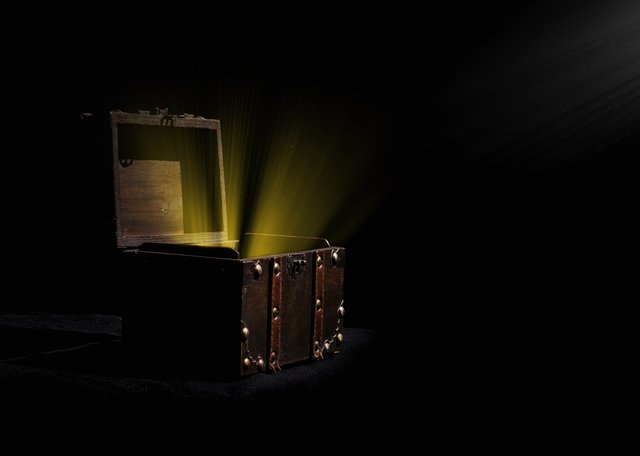
That sense of entitlement is the same through all four games. Nathan never considers for a moment that any of it, whether it’s the end-game McGuffin treasure or small collectible trinkets, might not be his to take. From Nathan's point of view, it seems like the people who live in the places he visits have no claim to any of it, as if they aren’t human beings at all, but part of the setting, obstacles to avoid or temporary guides to exploit. Even the name of the series — Uncharted — reinforces the idea, because most of the places Nathan visits are definitely charted; in almost every case, Nathan has just found some clue or tool that allows him to break into tombs and temples that haven't yet been excavated by locals.
Sometimes Nathan’s motivations take on a broader moral urgency when one of the villains is going to use some kind of weird ancient sap to become immortal, or tap into some hallucinogenic water source to do mind control. It always feels like an afterthought, though, like the writers are struggling to find a way to convince you that what Nathan is doing isn’t monstrous. After all, how does Nathan’s Russian antagonist becoming immortal threaten the world? He’s clearly not even really immortal, given that Nathan kills him; he’s just harder to shoot. How do Nathan’s classy British antagonists using fear-based hallucinogens to beat their rivals in the treasure-gathering game threaten the world any more than the basic anti-competitive tactics of existing capitalist monopolies? What is the actual threat?
"Sometimes the threats are abominable snowmen, which are revealed in Uncharted 2 to just be Peruvians wearing abominable snowman suits, I guess?"
The reality is that the world-scale threats are smokescreens, barely covering the fact that Nathan is less of a wise-cracking treasure hunter and more of a jolly green giant walking the Earth with guns. He takes what he wants because he feels that the world belongs to him. It’s the American psyche distilled: He’s the only person smart enough to solve the world’s mysteries, the winner of every fight, and he does it all while looking like somebody you’d see failing to do a kick-flip outside a skate shop, a puka shell necklace around his neck, a cracked jewel case in his back pocket with a burned copy of Pennywise’s self-titled debut inside.
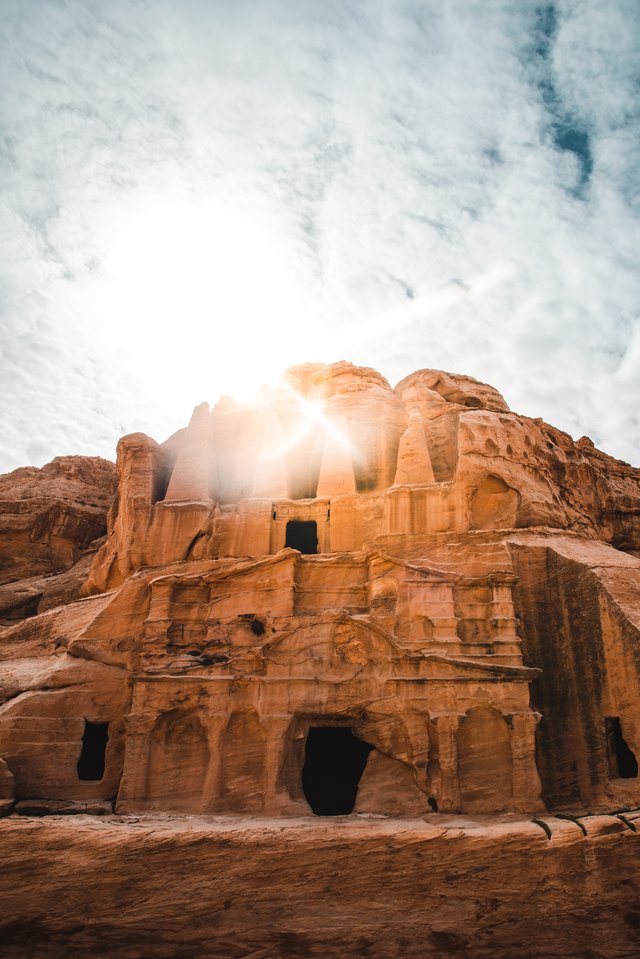
Nathan even seems to justify this entitlement in some small way to himself, because he makes it a part of his identity. The first thing Nathan does in the series is pull the coffin of Sir Francis Drake from the ocean off the coast of Peru. He knows there won’t be a body inside, but instead a clue leading him to the treasure Drake supposedly abandoned while circumnavigating the globe. Over the course of the next four games, the treasure of Francis Drake remains a consistent thread pulling Nathan forward, a life goal he constantly pursues.
"Francis Drake was a pretty prolific slave trader, but Nathan doesn’t really talk about that."
Early on, it’s even implied that Nathan could even be an heir of Francis Drake — his name is Nathan Drake, after all — tying him by blood to both the treasure and a historical figure notable for his own brutal imperial tendencies. The connection suggests a sense of birthright ownership for Nathan; it’s an ancestral belonging. Eventually, however, we learn through flashbacks that “Drake” is a chosen name based on the bizarre Victorian-seeming Orphanage for Wayward Boys Who Are Great at Climbing where Nathan and his brother grew up. Like every other treasure Nathan encounters or searches for, Francis Drake’s is the same: something that Nathan arbitrarily glommed onto and claimed as his own.
The end result is that Nathan becomes a colonial force through all four games, less a treasure hunter than a cultural looter, dead-set on hollowing out the “uncharted” countries he visits and bringing their treasures back home. The various antagonists that stand in his way launder his image, because they’re looters as well, but less superficially friendly; given a choice between two sets of looters, Nathan starts to look like a pal. More than anything else, though, his American everyman aesthetics play into our ingrained biases — “of course he’s the hero,” we think, “he looks just like Dane Cook, a cool guy” — and we forgive his imperialist transgressions, no matter how much treasure he attempts to steal.
Unfortunately for the world Nathan inhabits, though, thievery is only the beginning of his crimes. While treasure appears to be the motivation for every one of Nathan’s adventures, a trend becomes clear as the games progress: Nathan never really takes any for himself. He manages to pocket a loose trinket here and there, sure, but for the most part, each adventure ends with a vast trove of McGuffin treasure that is immediately lost. That’s because the treasure takes a backseat to Nathan’s true motivation: constant, unrepentant violence.
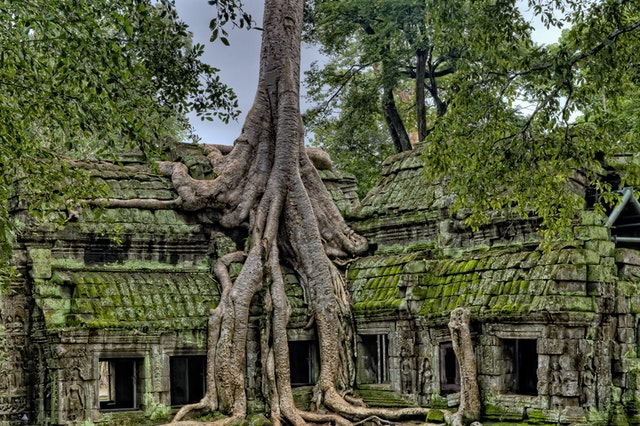
At first, Nathan’s violence is portrayed as reluctant. He spends the first game just trying to survive, defending himself against hordes of mercenaries from a competing treasure hunting group. Neither the game nor Nathan give any consideration to the fact that these are human beings he’s slaughtering — and, given that they’ve been hired as protection on a remote island, probably not human beings who thought they were signing up for protracted gunfights — but Nathan’s position being squarely framed as self-defense makes it fairly understandable. He has a damsel in distress to rescue, after all.
By the second game, however, the moral cost of Nathan’s adventures escalates exponentially. For most of the game, he chugs along just as he did in the first one — opposing treasure hunters and their hired mercenaries want to stop him, and he defends himself, still unconcerned that his passion for treasure places him in scenarios where he has to take countless lives — but by the time we reach the conclusion, things take a turn. Nathan uncovers the lost city of Shambhala, and along with it, the guardians who live within.

The guardians of Shambhala don’t appear to be human, but they’re clearly portrayed as sentient, rational, human-adjacent beings who have lived in Shambhala for unknown centuries before being set upon by Nathan and his antagonists. Like most of the living things Nathan encounters, they don’t seem to matter to him — they’re violent set dressing, a frightening Other for him to fight — and that disregard is the underpinning of the casual horror that unfolds when Nathan’s struggle with The Russian Guy villain leads to the complete collapse and destruction of everything in Shambhala.
"In Uncharted 4, Nathan sees an ancient jail for pirates and says, 'every group has it’s assholes,' seemingly unaware that he should definitely be in jail for crimes against humanity."
Nathan doesn’t think for a moment about the fact that he has contributed to a literal genocide, completely wiping the people of Shambhala off the face of the Earth, because destruction is the purpose of his life. He has no qualms about doing nearly the same thing in the next game when his actions lead to the total destruction of the Lost City of Ubar. In fact, he spends some time lost in the desert, nearly dying of thirst, and is finally revitalized not by finding a shining pool in an oasis, not by finding some stash of US-funded supplies left by Saudi troops on the border of Yemen, but by finally inadvertently wandering into Ubar and finding people to shoot. The second he spills blood, he is alive again.
More than once in the third game, we see flashbacks to Nathan’s teen years. He’s just a young Dane Cook then, no puka shells to be seen; he looks like he just wants to gather his lacrosse buddies after school to bully local nerds and do hate crimes as pranks. Teenage Nathan attempts to steal some Francis Drake-related junk from a museum and meets a younger Sully — for some reason, Nathan seems fairly comfortable with him, despite the fact that he appears to be either a middle-aged sex tourist or an international arms dealer — and shortly after, Nathan is pursued, as he is throughout his life, by some nasty villains who want his treasure.
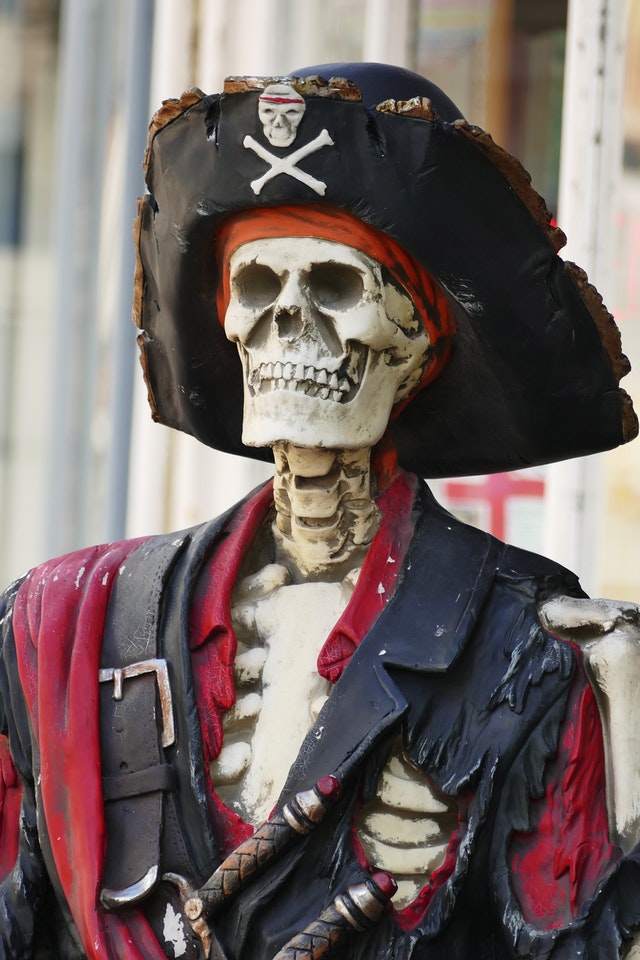
We see a variety of black-suited baddies chase Nathan across rooftops. He leaps from roof to roof, as he always does, until one of his pursuers finally catches him. The struggle is brief, as Nathan quickly wrenches free from the man’s grip, only to send him stumbling backward from the rooftop and falling to his death. Nathan pauses only for a moment — a brief glimpse of hesitation in his eyes, a split-second of humanity as he realizes that, justified or not, purposeful or not, he has directly caused the death of a human being — but within seconds, he has a gun in hand for the first time, ready to fire on another of his pursuers.
We see then that violence is natural to Nathan. He never hesitates, and he's never troubled by it even for a moment. It fuels him, and the energy he derives from it only increases as the blood-soaked years drag on.
To be fair, the Uncharted series matures a lot as it progresses. By the fourth game, Nathan starts to feel less like a young Dane Cook screaming punchlines while pounding Monster energy drinks, and more like a wizened Ryan Reynolds type, graying, but still smug and insufferable, always about to make a joke about his wife being a nag. It even makes an effort to better personalize Nathan’s struggles — in Uncharted 4, they’re more about his relationship with his brother, the stakes much lower — but it never escapes its imperialist roots.
At the end of the day, each game gives us Nathan Drake, an American everyman who travels to far-away lands and colonizes them, looting and destroying without regard for the locals, casually committing genocide and remorselessly gunning down more people than most of us will ever know in a lifetime. He taps into the American psyche and we imagine ourselves in that role, swinging from vines and rescuing damsels until they get worn down and marry us, having thoughtful mumblecore conversations as we play Crash Bandicoot, our attics littered with the plunder we took from countries we consider to be uncharted.
And as our fresh-faced young daughters look over the loot we’ve stashed away in the guest house on our beach-front property, as they finally confront us regarding the dangerous adventures we undertook long before they were born, we don’t tell the whole story. We don’t mention the man who fell from the roof — our first, emotionless kill — or the guardians of Shambhala, now all buried and gone. We tell a sanitized tale of globe-trotting adventure, white-washed like the history books we find in our classrooms, and convince those baby Drakes to take what they want, because everything on the horizon belongs to them as well.
A new generation is born, and the world shudders.